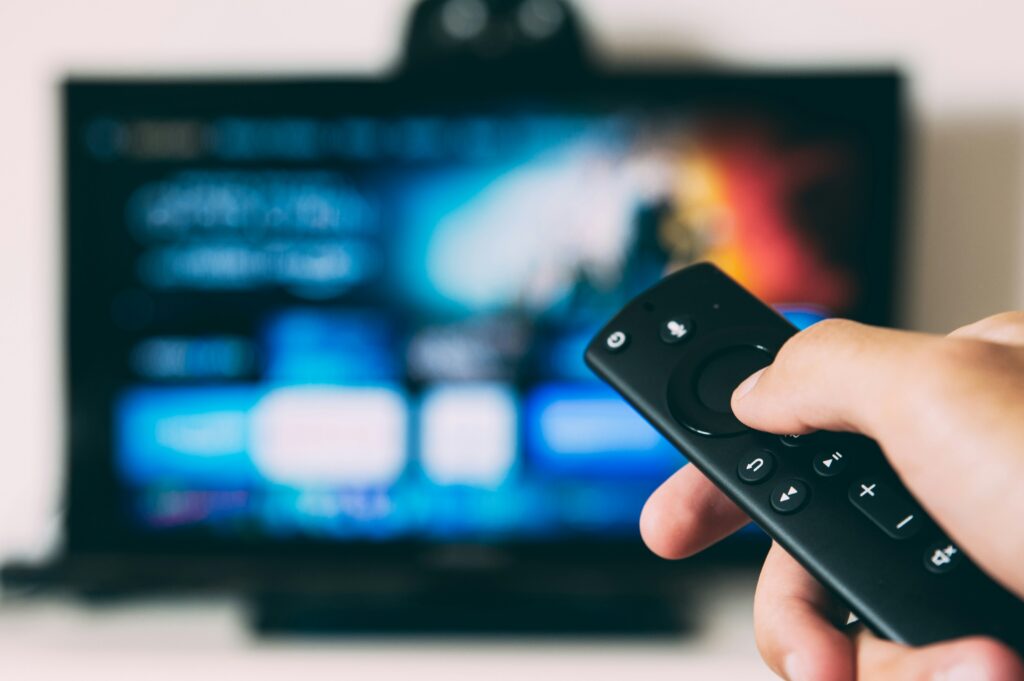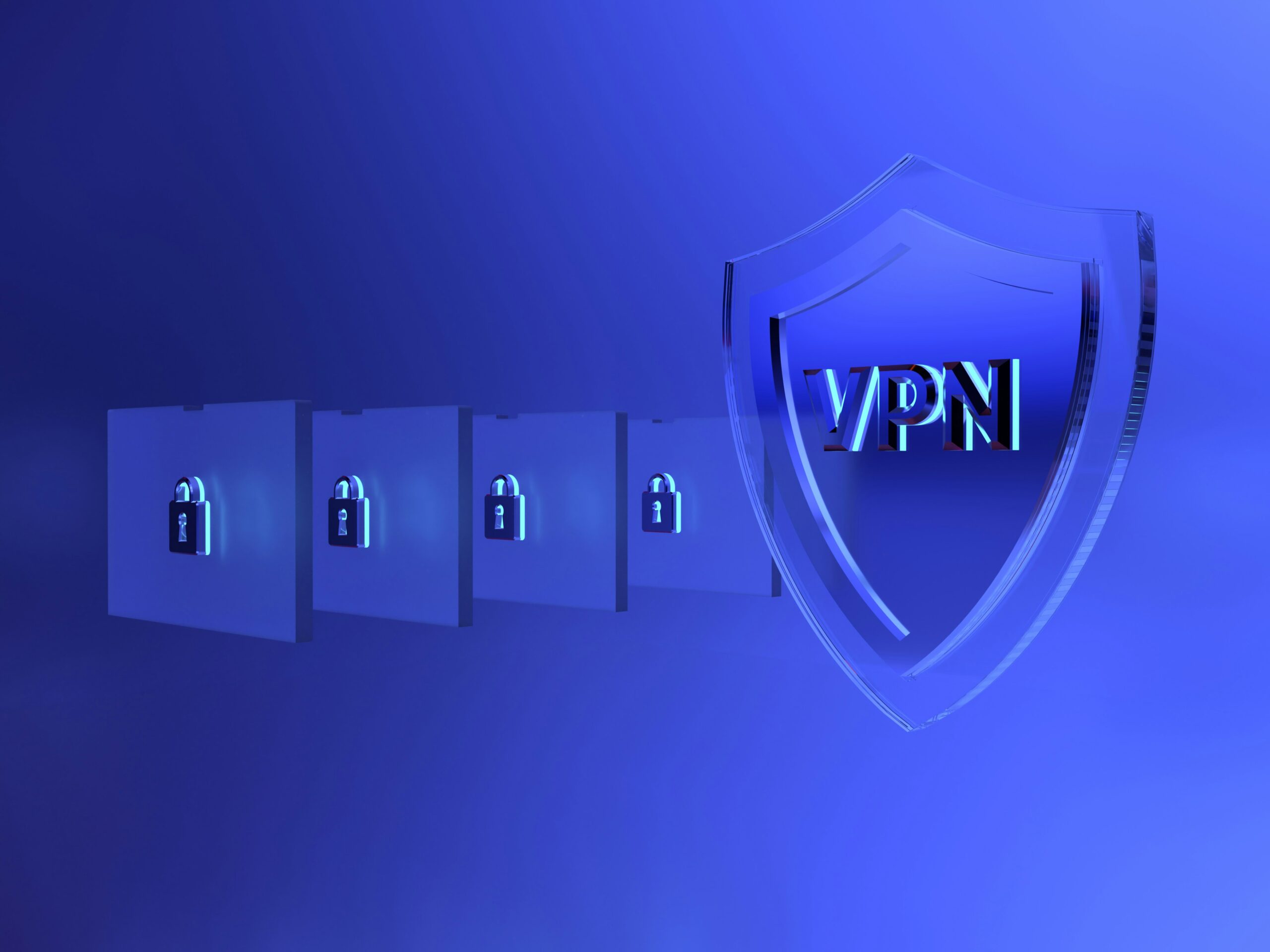Many users wonder: do I need a VPN for IPTV? The short answer is that if you value privacy, wider content access, and consistent streaming quality, using a VPN with your IPTV service is highly beneficial. A VPN (Virtual Private Network) encrypts your internet connection and routes it through a server in a location of your choice. This offers multiple advantages for IPTV viewers – from safeguarding your streaming activity to unlocking content – but there are also scenarios where a VPN may not be strictly necessary. In this guide, we’ll explore why use a VPN for IPTV, what makes the best VPN for IPTV, and when you might or might not need one.

Why Use a VPN for IPTV?
Using a VPN alongside your IPTV service can significantly enhance and protect your streaming experience. Here are the key reasons why a VPN is beneficial for IPTV users:
- Protecting Privacy & Anonymity: A VPN encrypts all your streaming data, so your Internet Service Provider (ISP) and other third parties cannot see what you’re watching. Without a VPN, your ISP can clearly detect that you’re using IPTV and even monitor your viewing habits. With a VPN, your IPTV streaming just looks like regular encrypted internet traffic, keeping your activity private and anonymous. This means neither your ISP nor your IPTV provider can easily track or profile your viewing behavior. This privacy is especially important if you’re using unlicensed or “gray area” IPTV services – while it doesn’t legalize any illicit streaming, a VPN does prevent casual snoopers from seeing your IP address and location during those streams.
- Bypassing Geo-Blocks & Content Restrictions: Many IPTV services (including legitimate ones) are region-locked, meaning they only work in specific countries or offer different channels per region. This can be frustrating if you want to watch international channels or if you travel abroad and lose access to your usual IPTV lineup. A VPN lets you switch your virtual location by connecting to a server in the required country, making it appear as if you’re browsing from that region. In practice, this means you can unlock geo-blocked channels or libraries and continue using your favorite IPTV service while traveling, all while boosting your online privacy. VPN “geo-spoofing” effectively evades regional blocks – for example, connecting to a UK server to watch UK-only IPTV channels from overseas.
- Avoiding ISP Throttling and Blocking: ISPs are known to sometimes throttle (slow down) streaming video traffic like IPTV, especially during peak hours or if they detect high-bandwidth usage. Without a VPN, your provider can see you’re streaming IPTV and might deliberately prioritize other traffic or impose speed limits, leading to buffering and drops in quality. A VPN prevents this by encrypting your data; your ISP can no longer identify streaming traffic or specific IPTV data. In essence, your ISP “can’t tell” that you’re watching IPTV, so it’s much harder for them to target and throttle your connection. The result is often smoother video playback with fewer interruptions once the VPN is on. Moreover, some ISPs or networks outright block certain IPTV apps or streams – a VPN can tunnel around these blocks by assigning you a new IP address and routing through an encrypted channel, restoring access to the content.
- Security on Public or Restricted Networks: If you stream IPTV on public Wi-Fi (or any shared network like at a school or workplace), you face additional risks and restrictions. Public hotspots might block streaming sites or expose your data to snoops on the same network. A VPN’s encryption shields your IPTV streams on these networks, preventing hackers or nosy network admins from intercepting your traffic. It also helps bypass firewalls on restricted networks – for instance, if a campus or office Wi-Fi blocks IPTV sites, a VPN can often get around those filters. By keeping your connection secure and encrypted, a VPN ensures you can stream privately even on untrusted networks.
In summary, a VPN acts like an invisibility cloak for your IPTV usage: hiding your IP address, securing your data, and granting you open access to content. With a strong VPN, your streaming becomes safer, smoother, and less restricted.
VPN vs No VPN for IPTV – Quick Comparison: The table below highlights what changes when you use a VPN for IPTV versus not using one:
| Aspect | Without VPN for IPTV | With VPN for IPTV |
|---|---|---|
| Privacy | ISP and others can see that you’re streaming IPTV and even what you watch. Your IP address is exposed to IPTV providers and possibly third parties. | Streaming data is encrypted, so your ISP can’t inspect or identify it. Your IP is hidden from IPTV services and snoopers for greater anonymity. |
| Geo-Blocked Content | Limited to channels and content available in your physical region. If you travel, you may lose access to your paid IPTV services. | Ability to connect through servers worldwide to unblock regional IPTV content. You can appear “local” in another country and access channels as if you were there. |
| ISP Throttling | ISP can detect video streaming and may throttle your bandwidth or prioritize other traffic, causing buffering. Some IPTV streams or sites might be outright blocked by the ISP. | ISP can’t easily detect IPTV traffic due to VPN encryption, making targeted throttling unlikely. You bypass ISP blocks since your traffic is routed through a secure VPN server. |
| Streaming Quality | High risk of buffering or quality drops during peak times if ISP throttles streaming. Routing may be suboptimal, especially for overseas streams, causing lag. | Often improved stability and speed consistency. VPN can choose efficient routes to the IPTV server, avoiding congested networks and reducing lag. |
| Legal Exposure | If using unlicensed IPTV services, your identifiable IP and data could be logged or handed to authorities; some countries have fined users for illegal streams. | VPN adds a layer of anonymity by masking your IP address, which can reduce the chance of being personally identified in mass surveillance or ISP monitoring. (Note: A VPN does not make illegal activities legal – it only enhances privacy.) |
Best VPN for IPTV: Key Features to Look For
Not all VPNs are equal, especially when it comes to streaming IPTV smoothly. To find the best VPN for IPTV usage, keep an eye on the following features and criteria:
- Fast and Stable Speeds: Streaming live TV or HD video requires a fast connection. The best VPNs for IPTV maintain high bandwidth and low latency, so you can watch in HD or 4K without buffering. Look for VPN providers known for performance – for example, top services in 2025 like NordVPN, Surfshark, ExpressVPN, and CyberGhost are praised for their speed in streaming tests. If a VPN is too slow, you might only get low-resolution video or constant pauses to buffer, which defeats the purpose.
- Global Server Network & Unblocking Ability: A quality IPTV VPN offers a wide range of server locations across different countries. This allows you to unlock more content libraries and find a nearby server for better speed. Ensure the VPN is capable of evading VPN-blocking systems used by streaming services. According to Comparitech, VPNs like NordVPN and Surfshark have “exceptional unblocking ability” for popular platforms and IPTV streams. In short, the best VPN for IPTV should reliably bypass geo-restrictions and work with major streaming services from anywherecomparitech.comcomparitech.com.
- Strong Security and Privacy Policies: At a minimum, choose a VPN with strong encryption (AES-256) and a strict no-logs policy. This ensures your viewing data stays private and isn’t stored on the VPN’s servers. Additional security features like a kill switch (which cuts your internet if the VPN drops to prevent IP leaks) are important for IPTV, so you don’t accidentally expose your activity if the connection falters. DNS leak protection and advanced protocols (like WireGuard or OpenVPN) also help keep your connection secure and stable.
- Multi-Device Compatibility: Think about where you watch IPTV – it could be on a Smart TV, Amazon Fire Stick, computer, or mobile device. The best VPNs for IPTV offer apps or configurations for a variety of devices and allow multiple simultaneous connections. For instance, Surfshark permits unlimited devices under one account, which is convenient if you have an IPTV box, a laptop, and a phone all streaming content. Router support is another plus (so you can cover devices like certain smart TVs or streaming boxes that may not have native VPN apps).
- Reliability and Support: A VPN that frequently disconnects or has limited bandwidth will hurt your IPTV experience. Top-tier VPNs should have a reputation for reliability – no sudden drops, no bandwidth caps, and responsive customer support if you encounter issues. The VPN should not impose data limits that could cut off a long TV binge. Many premium VPNs also offer 24/7 support and money-back guarantees, reflecting confidence in their service quality.
- Avoiding Free or Low-Quality VPNs: While there are free VPNs out there, they often come with significant drawbacks for IPTV use. Free VPNs typically have limited bandwidth, slow speeds, or small server selections, which can cause buffering and frustration. Some free services may even log your activity or inject ads, undermining your privacy. In fact, many free VPNs or lesser-known providers are blocked by IPTV services or simply fail to work reliably. For a consistent and safe streaming experience, it’s worth investing in a reputable paid VPN. Premium VPN providers design their networks for high-bandwidth streaming and usually offer trial periods or money-back guarantees so you can test them risk-free.
Top VPNs for IPTV (at a Glance): Industry experts often recommend a few leading VPN services for IPTV users. For example, Cybernews and Comparitech rank NordVPN and Surfshark among the best VPNs for IPTV in 2025 due to their fast speeds, strong privacy features, and large server networks. ExpressVPN and CyberGhost also frequently make the list thanks to their reliability and streaming-optimized servers. Whichever provider you choose, ensure it meets the criteria above so that it truly enhances your IPTV experience rather than hindering it.

Is a VPN Always Necessary for IPTV?
You might be thinking: Is it absolutely necessary to use a VPN for IPTV in every case? The answer depends on how you use IPTV and your specific circumstances. Many people do use IPTV without a VPN, especially if their usage is straightforward. Here are scenarios when you might not need a VPN for IPTV, and important considerations to keep in mind:
- Streaming Legitimate Services in Your Region: If you’re only watching content from legal, licensed IPTV providers (e.g. official streaming services like YouTube TV, Hulu Live, Sling TV, etc.) that are available in your country, and you don’t face any artificial limitations, a VPN is not technically required. Legitimate services generally don’t need a workaround to function, and if you’re not concerned about ISP monitoring for these, you might not notice any difference without a VPN. In countries with strong data privacy laws and net neutrality, the risk of ISP interference or surveillance on mainstream streaming may be low.
- No Issues with ISP Throttling or Blocking: If your ISP does not throttle streaming traffic and isn’t blocking any IPTV domains you use, you may not feel an immediate need for a VPN. For example, some users have sufficiently high internet speeds and never experience buffering on IPTV; their ISP treats video streaming normally. In such cases, adding a VPN might not noticeably improve performance (in fact, a VPN can slightly reduce speed due to encryption overhead, though top VPNs minimize this). However, keep in mind that ISP policies can change, and throttling could begin if the ISP’s network gets congested or if they start identifying heavy IPTV usage.
- Content is Not Region-Locked for You: If all the channels or IPTV streams you watch are already accessible in your location (and you have no desire for foreign channels or traveling with the service), the geo-unblocking benefit of a VPN might be irrelevant to you. For instance, if you only watch local IPTV offerings and they work without issue, you might not need the location spoofing that a VPN provides. Just be aware that if you ever try to access content from another region or if a certain show is blocked in your area, you might then require a VPN.
In these low-risk or hassle-free scenarios, IPTV is certainly usable without a VPN and many users do exactly that. However, using IPTV without a VPN means giving up layers of privacy and flexibility. Even when everything seems “fine” without one, you are still exposing your viewing activity and IP address each time you stream. Your ISP can log what you’re doing online, and content providers can enforce regional restrictions based on your true location. If circumstances change – say your ISP introduces bandwidth throttling for streamers, or you decide to try a different IPTV service that might operate in a legal gray area – you could quickly wish you had that VPN protection in place.
Bottom Line: It’s not mandatory to use a VPN with IPTV, but it is strongly recommended in most cases. Even when IPTV works fine without one, a VPN gives you peace of mind. You gain privacy from any monitoring, the freedom to access content globally, and protection against surprise issues like ISP slowdowns. The added security can be valuable if you ever change to a less secure IPTV provider or find yourself on a network that restricts streaming. Essentially, a VPN is an insurance policy for better, safer streaming – you might not need it every single time, but you’ll be very glad to have it when it counts.

Legal and Safety Considerations
Before you decide on using (or not using) a VPN for IPTV, it’s important to understand the legal landscape and stay on the right side of it. Using a VPN itself is legal in most countries, but what you stream might not be. Here are some final points to keep in mind:
- VPNs and Legal IPTV: If you’re accessing only licensed, official IPTV or streaming services, using a VPN is usually within the terms of service (though some platforms frown on VPN usage to bypass location rules). Always review the service’s policies – for example, some subscription services might restrict usage to the country of purchase and might suspend accounts if they detect VPN usage against their rules. However, generally there’s no law against using a VPN to protect your privacy while streaming legitimate content.
- Unlicensed Streams and Enforcement: A VPN does not make illegal streaming legal. If you use a VPN to watch pirated IPTV streams, you are still violating copyright laws. The VPN conceals your activity from your ISP, but determined authorities have other ways to catch offenders (such as server raids or monitoring known piracy networks). In fact, some countries are cracking down on IPTV piracy by targeting end users. For instance, in 2025 Italian authorities fined over 2,200 individuals for subscribing to pirate IPTV services, with repeat offenders facing fines up to €5,000. This shows that simply hiding behind a VPN might not save you if law enforcement obtains subscriber records from the IPTV service itself. Always consider the legal risk – the safest approach is to stick to legal IPTV sources.
- ISP Notices and Copyright Alerts: In some regions, ISPs send warnings or copyright infringement notices to customers they detect streaming illegal content. A VPN can prevent your ISP from seeing that activity (thus preventing a notice in the first place). This is one reason many users choose to use a VPN with questionable IPTV services – to avoid ISP letters or bandwidth termination. While this can provide a layer of protection, again remember it’s not foolproof if the IPTV provider is compromised. Use your discretion and understand the consequences if you venture into unauthorized streams.
- Local VPN Regulations: A few countries have restrictions on VPN usage or require VPNs to be government-approved. If you live in or travel to such a country, ensure you’re aware of local laws about VPN use. Generally, using a VPN for personal privacy is legitimate, but always stay informed about your jurisdiction.
Conclusion: Do I need a VPN for IPTV?
Using a VPN with your IPTV service is about more than just accessing extra channels – it’s about protecting your privacy, avoiding ISP throttling, and securing your streaming activity. While you can use IPTV without a VPN, doing so leaves you open to potential monitoring, speed issues, and regional content blocks. A quality VPN enhances your IPTV experience by offering smoother playback, broader access to content, and greater peace of mind. Whether you’re streaming local channels or international ones, pairing IPTV with a reliable VPN is one of the smartest ways to take control of your digital entertainment.
Finally, please be sure to read our legal disclaimer before purchasing any IPTV service.

